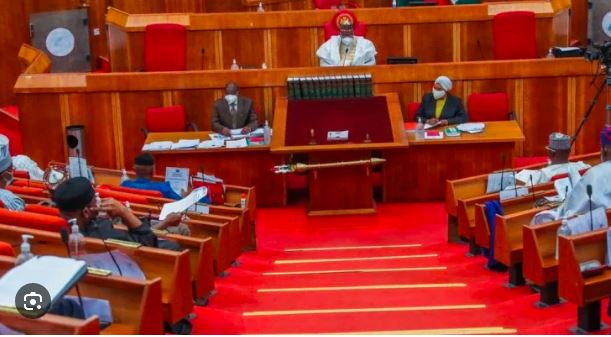In a significant development, the Nigerian Senate has issued a directive for the Nigerian National Petroleum Corporation (NNPC) to release a tax credit fund totaling N2.7 trillion. The Senate’s order reflects a focus on ensuring financial transparency, meeting tax obligations, and addressing fiscal matters critical to the nation’s economic stability. The Infosride provides an in-depth exploration of the Senate’s directive, the implications for the NNPC, and the broader economic considerations.
Background on the Tax Credit Fund:
The N2.7 trillion tax credit fund in question is a substantial amount that represents accumulated tax credits that the NNPC holds. Tax credits are incentives provided by the government to encourage specific economic activities or investments. In this context, the Senate’s directive suggests a call for the NNPC to utilize or release the accumulated tax credits for the benefit of the nation’s finances.
Senate’s Directive to NNPC:
The Senate’s directive to the NNPC signifies a parliamentary intervention in matters related to the corporation’s financial operations. The specific details of the directive, including the utilization of the tax credit fund and the intended purposes, may be subject to further discussions and clarifications during Senate proceedings.

Implications for NNPC:
1. Financial Transparency: The directive places a spotlight on financial transparency within the NNPC. Releasing the details of the N2.7 trillion tax credit fund, including how it was accrued and its intended use, will contribute to a more transparent financial landscape for the corporation.
2. Fiscal Responsibility: The NNPC, as a major player in the Nigerian economy, is subject to fiscal responsibilities. Utilizing the tax credit fund in alignment with national economic priorities can demonstrate the corporation’s commitment to fiscal responsibility and its role in contributing to the country’s economic stability.
3. Impact on Operations: The release of such a significant amount could potentially impact the NNPC’s operations. Depending on the utilization plan, it may influence investment decisions, capital expenditures, and the overall financial health of the corporation.
4. Government Revenue and Budgetary Support: If the tax credit fund is channeled into government revenue, it can serve as a source of budgetary support. This, in turn, may contribute to funding critical sectors such as infrastructure, healthcare, education, and other essential services.
Broader Economic Considerations:
1. Fiscal Policy Alignment: The Senate’s directive aligns with broader fiscal policy considerations, emphasizing the need for government agencies to adhere to fiscal discipline and contribute to national economic goals.
2. Debt Reduction or Infrastructure Investment: Depending on the Senate’s intended use of the tax credit fund, it could be directed towards reducing national debt or financing key infrastructure projects. Both options have distinct implications for the country’s economic trajectory.
3. Stakeholder Accountability: The Senate’s involvement in directing the use of the tax credit fund reinforces the principle of stakeholder accountability. It underscores the role of legislative oversight in ensuring that public funds are utilized in the best interest of the nation.
4. Economic Stimulus: Depending on the economic climate and prevailing challenges, the release of the tax credit fund could serve as an economic stimulus. By injecting funds into the economy, it may contribute to increased economic activities and growth.
The Infosride’s Commitment to Comprehensive Reporting:
As the Senate directs the NNPC to release the N2.7 trillion tax credit fund, The Infosride remains committed to providing comprehensive reporting on the unfolding developments. Stay tuned for updates, in-depth analyses, and insights into the economic implications of this significant directive.
Support InfoStride News' Credible Journalism: Only credible journalism can guarantee a fair, accountable and transparent society, including democracy and government. It involves a lot of efforts and money. We need your support. Click here to Donate
